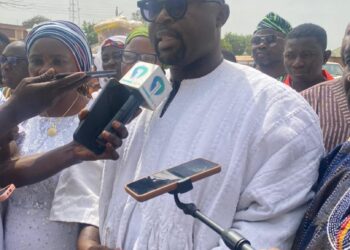
Unraveling the Struggles: International Relations, Aid, and the Persistent Economic Hardship in Ghana
By: Edwin Gogu / 0555588660 / goguedwin@gmail.com
Introduction
In the intricate web of International/Global Political Economy (I/GPE), the promises made by Ghanaian presidents to eradicate economic hardship and poverty seem to be ensnared.
This article delves into the impact of international relations and institutions on the implementation of poverty-alleviating policies in Ghana. While global organizations like the United Nations (UN), International Monetary Fund (IMF), and World Bank (WB) aim to uplift developing nations, the paradox lies in how their aid and unequal power relations often exacerbate the economic challenges faced by countries, particularly in Africa.
Historically, the state has been the primary agent of development, but the rise of international financial institutions like the IMF, World Bank, and NGOs has shifted the landscape. Countries, particularly in Africa, engage with these organizations seeking aid for development or in times of crisis. However, the aid, often accompanied by stringent conditions, contributes to the creation of more poverty rather than alleviating it, amplifying existing unequal power relations (Jones, 2005).
Jones (2005) emphasizes the unequal power relations at play in international relations, with developed nations, particularly European countries, wielding substantial influence over developing nations. Africa, rich in resources like cocoa and gold, finds itself subject to the pricing determinations of developed nations, creating a glaring power imbalance. While Africa struggles to influence the prices of finished goods like chocolate, developed nations dictate terms in a global economic landscape.
IMF and WB Loans: A Double-Edged Sword for Ghana
Examining Ghana’s recent recourse to IMF and World Bank loans reveals a troubling pattern. Driven by unfavorable economic conditions in 2014, Ghana entered into a three-year Extended Credit Facility. While intended to stabilize the economy, the IMF’s intervention imposed austerity measures, restricting employment, freezing public sector recruitment, and implementing tax policy adjustments. The consequent deferment of payments to critical funds, like the Ghana Education Trust Fund and National Health Insurance Scheme, significantly handicapped ongoing projects and affected health care and education in vulnerable communities.
The recent IMF deal on debt restructuring in Ghana further underscores the complexities of international relations. Ghana’s recourse to debt restructuring reflects economic challenges, with implications for ongoing projects and essential services. The conditionality attached to the IMF deal, such as payment deferrals, poses challenges for the nation, impacting education, healthcare, and infrastructure.
Paradigm Shift
The article contends that a paradigm shift is essential in the scope of foreign aid for developing countries to yield meaningful results. The perpetual state of dependency created by foreign aid, laden with conditionality’s, proves inefficient in eradicating poverty. To maximize aid’s usefulness, there is a need to redirect it towards government-led public investments in infrastructure and human capital without stringent conditions.
Conclusion:
As Ghana grapples with economic challenges, a critical examination of international relations, aid mechanisms, and power dynamics is imperative. This article advocates for a reevaluation of foreign aid, emphasizing the need to focus on empowering the recipients rather than perpetuating dependency. Only through a recalibration of international relations, where the voices of the powerless are amplified, can Ghana truly break free from the cycle of economic hardship and move towards genuine and sustainable development.
In the pursuit of global economic equity, the tale of Ghana serves as a poignant reminder that the promises made by leaders must navigate the complex currents of international relations and institutions to truly bring about the transformation they envision.
To address the persistent challenges posed by international relations and institutions, a paradigm shift is crucial. Jones advocates for a focus on studying international relations “from below,” emphasizing the impact on the powerless. The findings suggest that foreign aid should be re-evaluated, with a shift towards prioritizing public investment and human capital development. Conditionality, especially in the form of austerity measures, should be reconsidered to maximize the effectiveness of foreign aid in eradicating poverty and fostering sustainable development in developing nations like Ghana.
Source: Padfm.com.gh

















